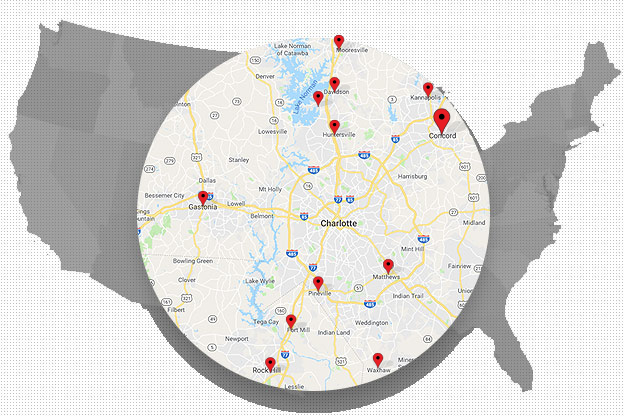Basement Waterproofing: Dos and Don’ts

Basements are versatile rooms that you can transform to fit your needs. However, they can also be at risk of getting flooded. If you aren’t careful, you could lose a lot of property to water damage.
What are some tips that you can use for basement waterproofing?
If you’re looking to waterproof your basement and protect your belongings, you’re in luck. Here are some dos and don’ts to waterproofing your basement.
Do: Regularly Clean Gutters
Cluttered gutters can cause a mess for your home. When you fail to clean out your gutters, they can get clogged up, making them unable to do their job.
Overflowing gutters send water directly to your basement instead of running off into your lawn. This can lead to severe flooding and water damage!
Save yourself the hassle of dealing with a flooded basement. Make sure you add gutter cleaning to your regular outdoor chore list!
Do: Check Frequently for Cracks
Cracks in the foundation of your basement are a huge problem when it comes to waterproofing your home. If you’ve noticed water in your basement, then make sure you check the area thoroughly for any damage to the walls. Water can easily work its way through the ground and into your home through these cracks.
Once you’ve located a crack, make sure you seal it up right away. Otherwise, it can easily grow and get worse over time.
Do: Try to Find Sources of Leaks
Cracks are just one possible source for leaks in your basement. Once you realize that water is getting in, make sure you take the time to search your basement for the source; just getting rid of the water is a temporary solution that won’t really help you.
If you are unable to find the source of the leaks, then you can contact a professional for assistance. They can also recommend strong solutions to keep water from getting into your basement later on!
Do: Fix Your Downspout
Making sure your gutters are clear shouldn’t be your only concern when it comes to your downspouts. You should also ensure that they are properly maintained without any cracks or holes. Make sure that they are running water in the correct direction as well.
Broken downspouts can cause water to seep into the foundation of your home, flooding your basement. It’s important to check that your downspouts are in good condition to protect your property!
Do: Research All Waterproofing Options
Before you jump into the waterproofing process, you should make sure that you research all of the options at your disposal. The ideal waterproofing you’ll need for your home depends on your situation; it’s important that you match your waterproofing methods to your exact needs!
Do: Call a Professional for Waterproofing Questions
When in doubt, contact a professional for help waterproofing your home. They have the necessary skills and tools to keep your home safe from severe water damage.
Even if you are able to do the waterproofing on your own, contacting a pro to go over what you did can be a real help. They can point out any flaws in your foundation you may have missed while waterproofing. Never neglect to call in an expert for assistance.
Don’t: Ignore Leaks
Yes, leaks are annoying, and you may think that a small leak or crack in your basement’s foundation can wait. If you aren’t careful, however, that small leak can do some serious damage!
Leaving a leak alone can cause it to damage the basement walls, allowing more water in. Before you know it, you could end up with some serious water damage.
Pay close attention to any leaks in your basement, no matter how small they may seem.
Don’t: Use DIY Sealants
DIY sealants have started becoming more and more common. They are a cheap way to fix up small leaks in basements and prevent flooding. However, these DIY sealants are a temporary relief at best.
Never stick to simple store-bought DIY sealants. While they may fix the issue in the short term, they are bound to wear away pretty quickly. It’s better to contact a professional for help with waterproofing.
Don’t: Neglect Cleaning After a Flood
After a flood, your basement is bound to become something of a mess. It’s easy to try to ignore the chaos downstairs and hope that another storm doesn’t come.
You should make sure that your basement is cleaned up well after any serious storms. That means clearing everything out no matter how insignificant it may seem!
Clearing out your basement is crucial to preventing mold buildup. It will also help you when you begin waterproofing your basement again.
Don’t: Ignore Damp Spots
Just like leaks, you should never turn a blind eye to damp spots in your basement. These waterlogged areas are signs of leaks and cracks in your foundation.
Follow the damp spots back to their source so that you can alleviate the issue. You may also want to get waterproof basement flooring to prevent warping and moldy basement floors later on.
Basement Waterproofing Made Easy
Basement waterproofing is crucial to protect your home and your belongings against severe water damage. The next time you discover a wet spot in your basement, keep these simple tips in mind to help you keep your property dry!
Are you looking to waterproof your basement but don’t know how to start?
We’re here to help. Contact us with any questions or concerns you have about our basement waterproofing services and continue reading our blog for more helpful tips today!
Recent Posts
- How Crawl Space Encapsulation Benefits the Environment – An Expert Guide
- 6 Ways Professionals Keep Your Crawl Space in Top Shape
- Structural Repair Solutions for Crawl Spaces, Basements, and Foundations
- Essential Crawl Space Repair Tips Every Homeowner Should Know
- The Importance of Radon Mitigation: Ensuring a Safe Living Environment for Homeowners
Categories
- Basement Mold
- Basement Waterproof Foundation
- Basement Waterproofing
- Crawl Space Dehumidifier
- Crawl Space Encapsulation Cost
- Crawl Space Repair
- Crawl Space Waterproofing
- Encapsulation
- Foundation Repair
- Foundation Waterproofing
- French Drains
- Leaky Basement
- Mold Remediation
- Mold Removal
- Radon
- Slab Jacking
- Sump Pump
- Uncategorized
- Vapor Barrier
- Water Leak
- Waterproofing
- White Mold
Archives
- June 2024
- May 2024
- March 2024
- January 2024
- June 2023
- May 2023
- April 2023
- March 2023
- February 2023
- January 2023
- December 2022
- November 2022
- October 2022
- September 2022
- August 2022
- July 2022
- June 2022
- May 2022
- March 2022
- February 2022
- January 2022
- December 2021
- November 2021
- October 2021
- September 2021
- August 2021
- July 2021
- June 2021
- May 2021
- April 2021
- March 2021
- February 2021
- January 2021
- December 2020
- November 2020
- October 2020
- September 2020
- August 2020
- July 2020
- June 2020
- May 2020
- April 2020
- March 2020
- February 2020
- January 2020
- December 2019
- November 2019
- October 2019
- September 2019
- August 2019
- July 2019
- June 2019
- May 2019

